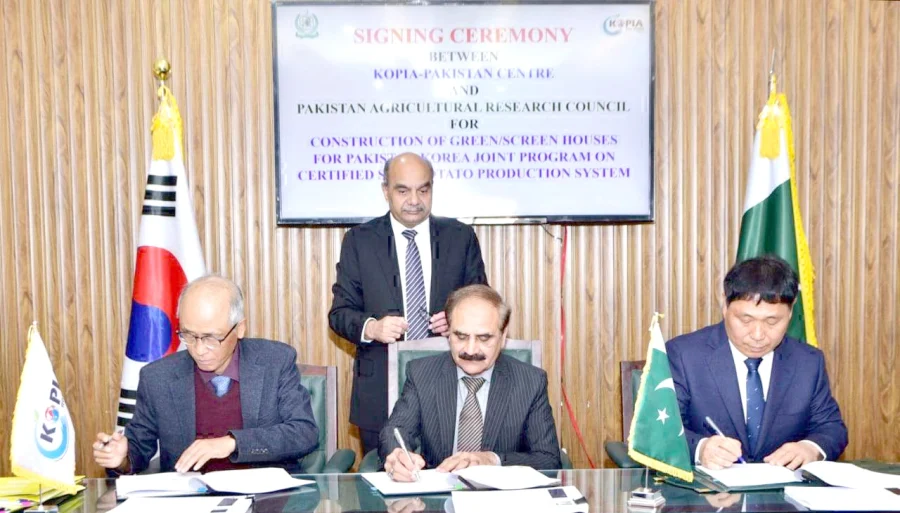Pakistan and Republic of Korea are working jointly on agriculture technology transfer projects for seed potato production through aeroponics, fodder production, chili drying and improvement in artificial insemination in cattle.
These projects are being implemented jointly by Korea Program on International Agriculture (KOPIA) and Pakistan Agricultural Research Council (PARC). Technical Cooperation Projects (TCPs) were signed for the construction of aeroponic green houses, oat and rye grass seed production and artificial insemination using Korean Holstein Sexed Semen in Cattle.
In his remarks, Dr. Ghulam Muhammad Ali, Chairman, Pakistan Agricultural Research Council (PARC), emphasized the significance of the developing aeroponic potato seeds in Pakistan. During the signing ceremony of the Technical Cooperation Projects (TCPs), Dr Ali explained that conventional potato plants typically yield only five tuber seeds, whereas aeroponic plants have the potential to produce 50 to 60 seeds each. Pakistan currently cultivates potatoes on approximately 300,000 hectares of land, yet due to the substandard quality of domestic seeds, the country imports 15,000 to 20,000 tons of potato seeds annually.
However, by implementing the aeroponic potato seed project, Pakistan could potentially save Rs 2-3 billion each year and attain self-sufficiency in potato seed production.









